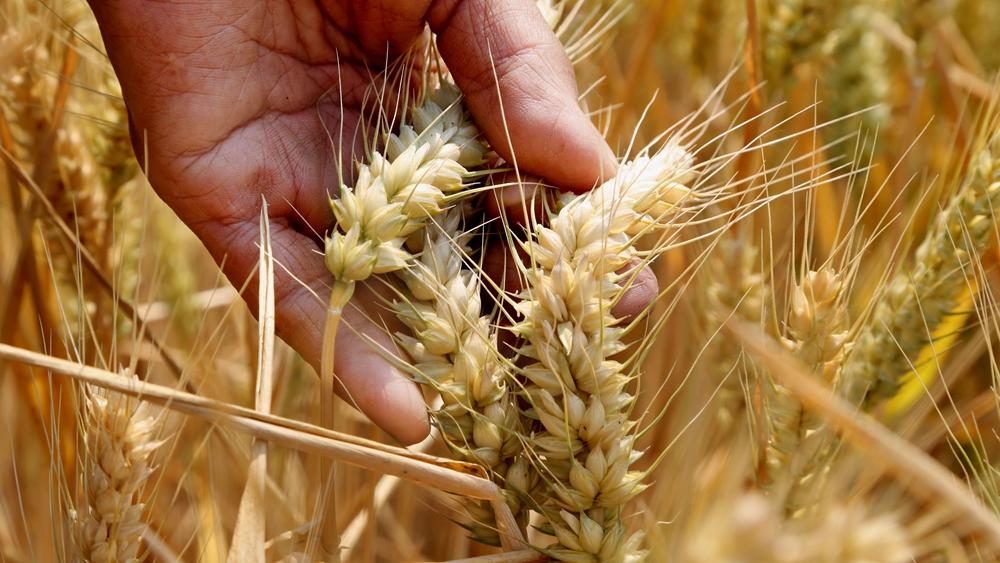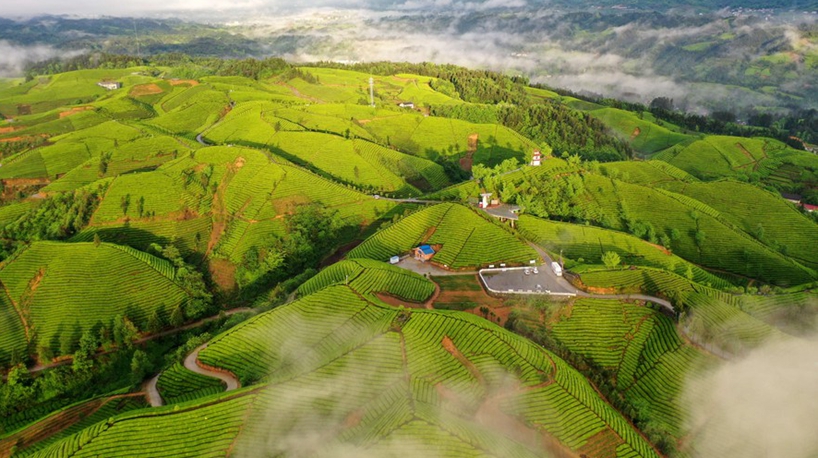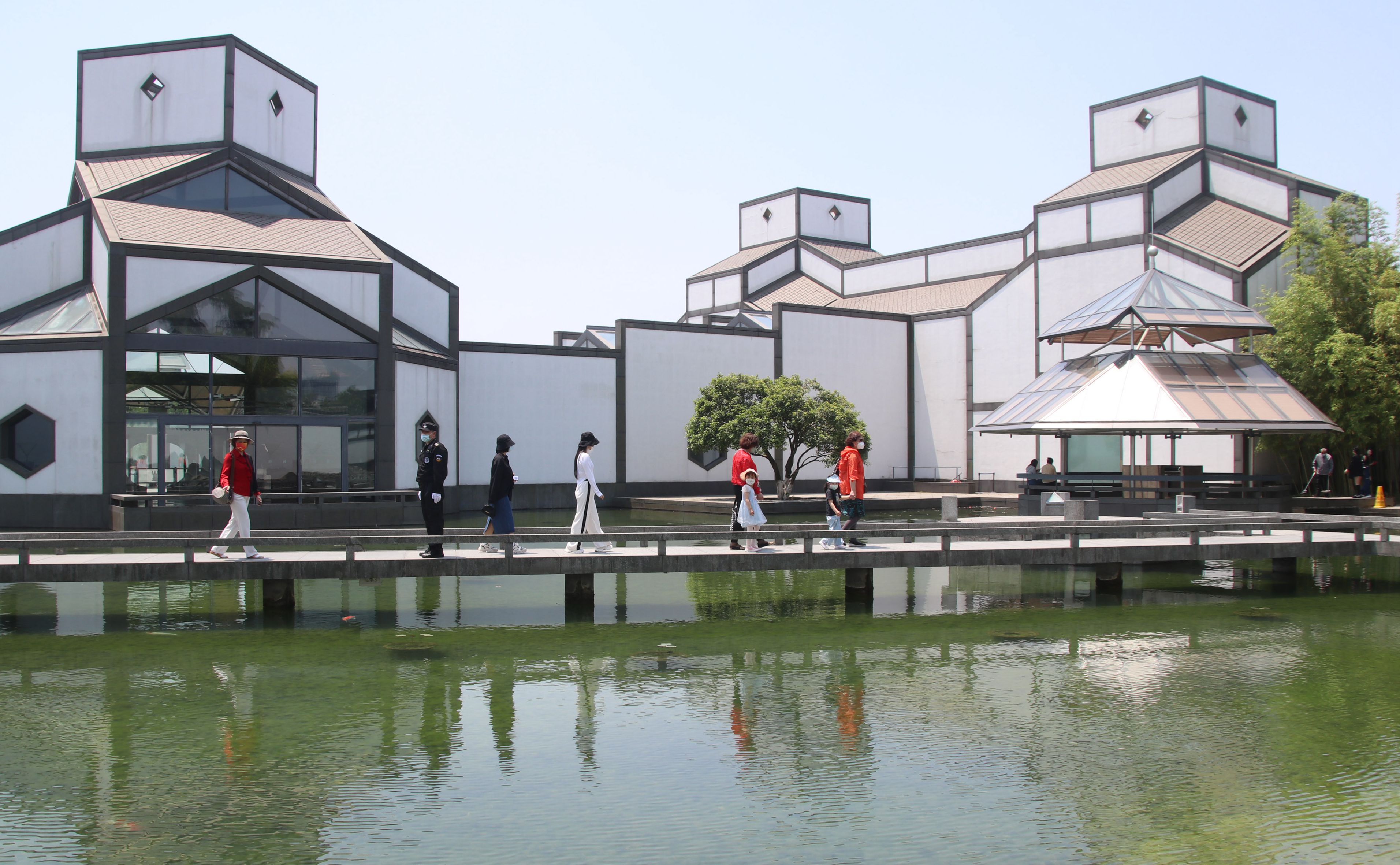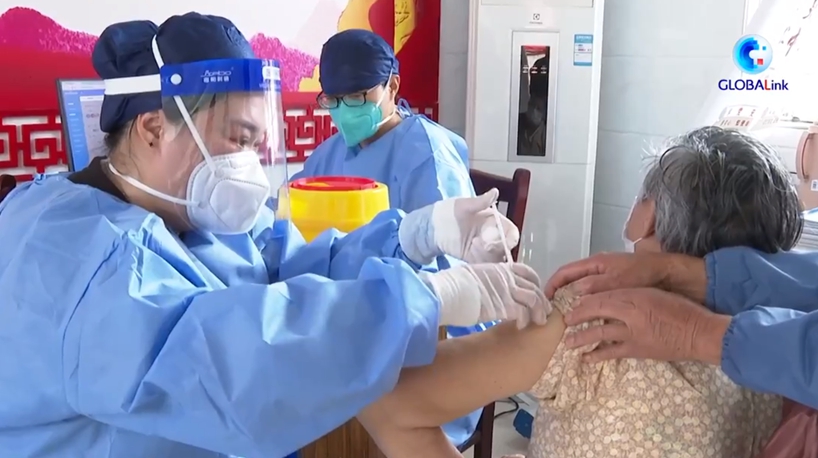
People wearing face masks walk past the Sydney Opera House in Sydney, Australia, Jan. 9, 2022. (Xinhua/Bai Xuefei)
Australia needs to be clear-eyed enough to recognize the fact that its national interests are not always in line with those of the United States, and a better choice should be made with an independent foreign policy to benefit its own people.
BEIJING, May 28 (Xinhua) -- While the United States is sinking deeper in its anti-China paranoia, Australia might well take a different path that best serves its own national benefit.
The U.S. government, still in the grip of a Cold War mindset, is only using the so-called Indo-Pacific Economic Framework as a tool to contain China, rather than benefit the region, which could be seen from its choice of "partners," draft of the rules and the approval process.
Patronizing its "allies" and using them, including Australia, as pawns, the U.S. government has been playing a game of power politics with no regard for their interests. This is quite obvious when the United States took over the market Australia has lost in China with no hesitation.
Australia needs to be clear-eyed enough to recognize the fact that its national interests are not always in line with those of the United States, and a better choice should be made with an independent foreign policy to benefit its own people.
From shared sufferings in history to present-day trading partners, for a long time, China and Australia have maintained a good relationship that brought both sides tangible benefits.

People walk near Sydney Opera House in Sydney, Australia, Aug. 4, 2021. (Xinhua/Bai Xuefei)
In World War II, China and Australia both fell victim to the Japanese fascists, and fought shoulder by shoulder against the Japanese aggression. A concentration camp set up by the Japanese in Shenyang of northeast China's Liaoning Province, which is preserved until today, had witnessed the suffering of some Australian soldiers.
This year marks the 50th anniversary of the establishment of China-Australia diplomatic ties. Chinese Premier Li Keqiang said earlier this week that the sound and stable development of China-Australia relations conforms to the fundamental interests and common aspirations of their people and is also conducive to peace, stability, development and prosperity in the Asia-Pacific region.
China has remained for years Australia's largest trading partner, export market, source of imports, source of tourism revenue and source of international students, according to Chinese Ambassador to Australia Xiao Qian.
The two countries have engaged in cooperation and exchanges in many different areas, which have blossomed in the past half-century.

A boy shows his coin and stamps for the Year of Tiger near Sydney Opera House in Sydney, Australia, on Jan. 14, 2022. (Xinhua/Bai Xuefei)
Two-way trade between them has jumped from less than 100 million U.S. dollars at the beginning of their diplomatic relations in 1972, to 230 billion dollars in 2021. Tens of thousands of Chinese students come to Australia every year and 1.2 million overseas Chinese are living in the country.
Many Australians also have aspirations for maintaining a sound and healthy relationship with China.
After the outbreak of the COVID-19 pandemic, Australia's philanthropic group the Minderoo Foundation procured over 90 tons of critical medical supplies from China, including face masks, medical coveralls and ICU-grade ventilators.
"We are receiving great support from China," said Andrew Forrest, founder of the foundation. "When we were desperate for COVID-19 tests and vaccines were only a distant fantasy, China came to our aid."
"It's only in a very short space of time that the relationship has gone off the rails," said Australian arts patron and former diplomat Carrillo Gantner. "I hope it can get back on the rails quickly as well."
Various online public opinion posts and editorials on both sides expressed similar yearnings over the past years when the China-Australia relationship slipped, calling for concerted efforts to move towards a detente.
The 50-year anniversary of the diplomatic ties offers a rare opportunity for the new federal government of Australia to review the achievements in bilateral relations, and allow the good experience to steer their ties back onto a track of long-term, healthy and stable growth.
"China is our close neighbour," said former Australian Prime Minister Gough Whitlam during his visit to Beijing in 1973. "Close co-operation and association between our two peoples is both natural and beneficial."
"We believe that there are great benefits for all in putting aside the rigidities and animosities of the Cold War era and grasping the opportunities inherent in the more open framework of relationships now developing in the world, to build a structure of cooperation based on mutual respect and mutual trust." His words still resonate today. ■












